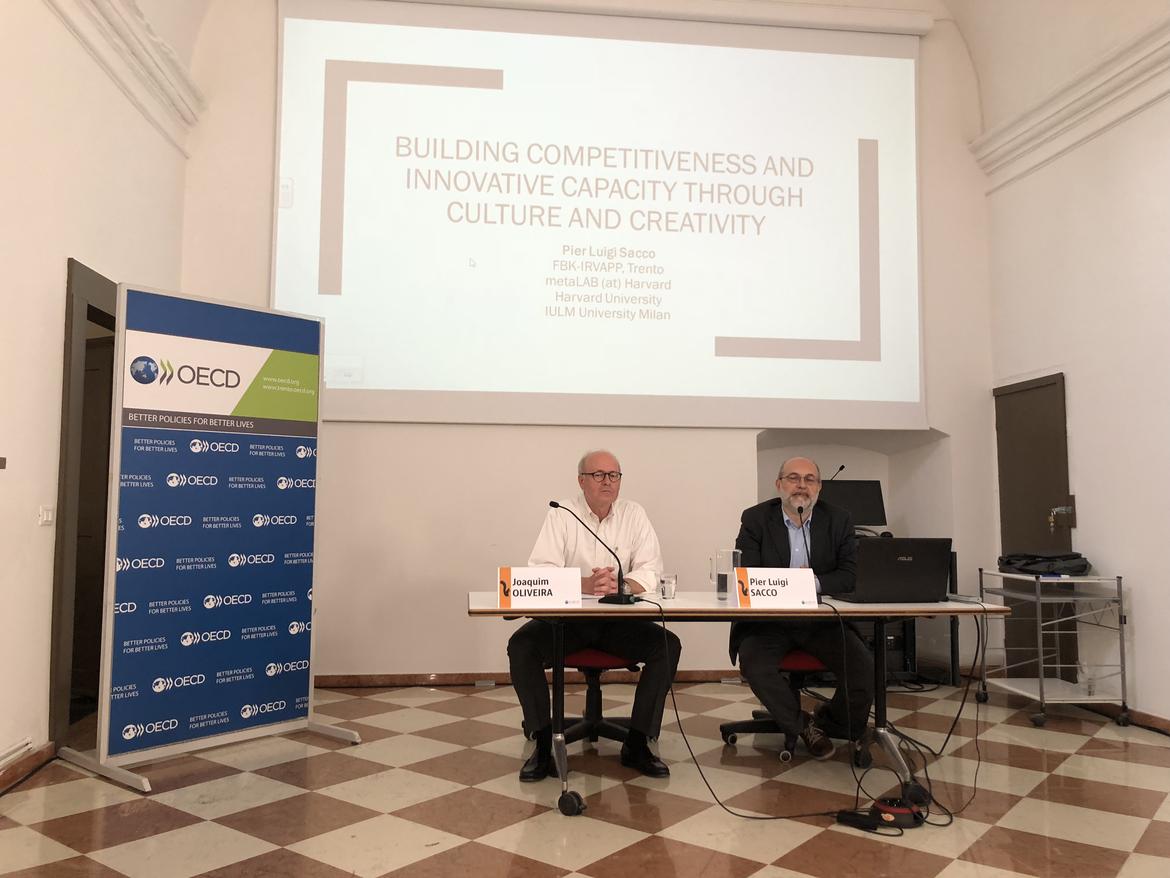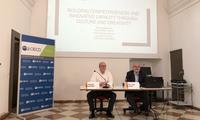
Professor Pier Luigi Sacco analysed the different types of subjects producing culture within a system. A variegated galaxy consisting of models linked to patronage, which include visual arts, live entertainment, heritage and museums; cultural industries, such as cinema, radio, publishing, and music; the creative industries, including design, fashion, food, and advertising; and finally the new open platforms, so versatile and changeable that it is difficult to define, which also include social networks, youtube and blogs. As recently suggested by the European Union guidelines, local development strategies must recognise and encourage the presence of all cultural segments. Focusing on the first segment, whose value is based on the originality and non-reproducibility of contents (arts, live performances, heritage), Professor Sacco stressed the need for public support: subsidising is not a sign of weakness and not debatable since it is intrinsic to the type of activity. The business model can not be applied to museums and theaters as the management logic is different. These are organisations that should not generate profits, but rather ideas and research that will have an echo on all the other cultural sectors.
Culture produces value when it changes people’s behaviours, by improving the ability to respond emotionally, observe and understand reality, and build new narratives. In particular, Sacco explained that culture affects welfare: active participation influences individual and collective well-being both in its physical and psychological dimensions. Indeed, this is the new knowledge frontier of international research institutes. Cognitive experiences have economic impacts that are currently being studied and are guiding the new European cultural agenda published a few days ago. Well-planned participative experiences improve quality of life and have consequences on health and collective behaviours. If we observe cultural policies from this perspective, they acquire a stronger role and can be considered as systemic policies. This redefinition is one of the new trend of socio-economic analysis promoted in Europe. Enhancing capacities, talents and opportunities is part of the challenge that countries are facing nowadays.








